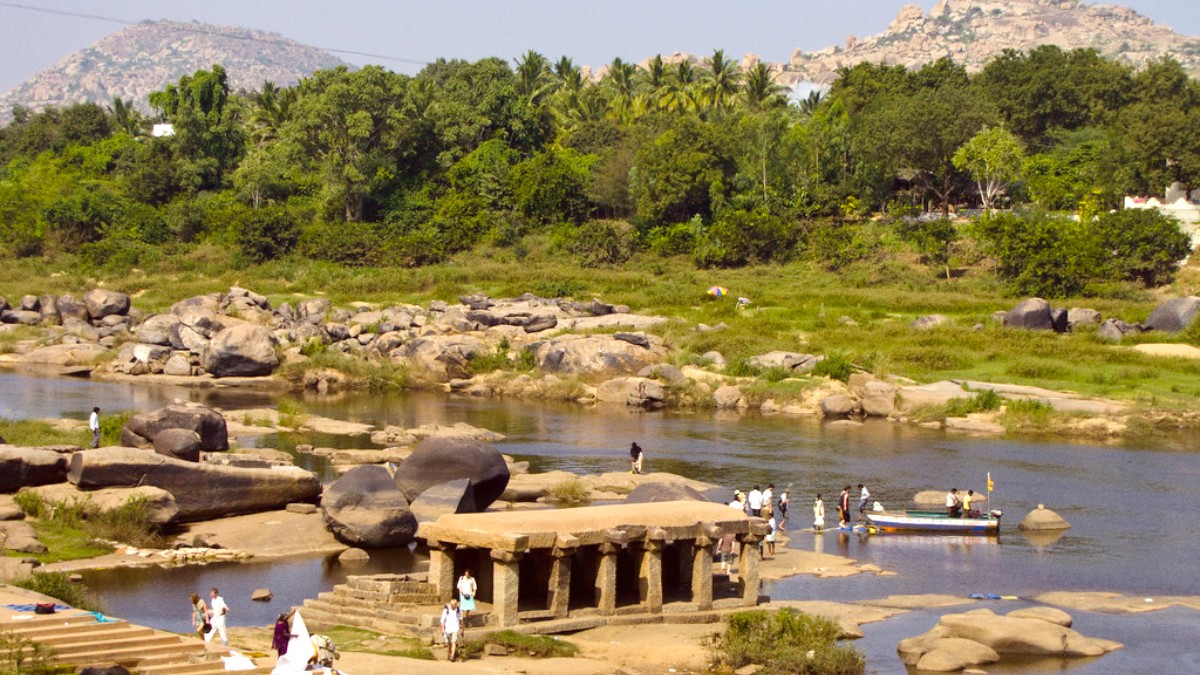
Karnataka, India
Hampi holds UNESCO World Heritage Site status, giving it extensive protection. ASI handles restoration and conservation. The unique boulder landscape has natural heritage that calls for protection from degradation.
Waste infrastructure in Hampi is basic. Littering is a problem in some areas. Minimize plastic: Refuse single-use plastics. Use a Reusable water bottle. Carry a reusable shopping bag. Dispose of waste responsibly.
Water resources face strain, especially during dry seasons. Be mindful of water usage (shorter showers, turn off taps). Consider offsetting flight emissions through reputable carbon offset programs like Terrapass. Choose trains and buses over domestic flights. Walk or cycle in Hampi.
Your choices make a positive impact on this unique destination.
The ASI actively works on restoring and preserving the Hampi monuments. Avoid touching or climbing on delicate structures; this causes damage. Respect the historical context.
Be mindful of privacy. Avoid intrusive photography, specifically in private spaces or of individuals who appear uncomfortable. Do not offer money for photos, as this encourages begging.
Look for guesthouses or hotels demonstrating environmental responsibility. Support ethical tour operators like G Adventures.
EcobnbShop for sustainable gear at places like Patagonia or reusable products at Package Free Shop.
The Rainforest SiteYour travel choices impact Hampi’s environmental well-being and cultural integrity. Mindful actions reduce negative footprints.
Your travel choices directly influence Hampi's local economy.
Support local initiatives that directly benefit the Hampi and Anegundi communities. Purchase handicrafts made by local artisans, like banana fiber products in Anegundi.
Seek out shops that clearly state fair trade practices or where you can directly observe artisans at work. This supports creators receiving fair compensation.
Be aware of tourist scams. Negotiate prices upfront for services. Do not give money directly to child beggars.
Giving money directly can perpetuate a cycle of dependency and may link to organized begging rings.
Beware of inflated prices or fake guides. Always negotiate fares and prices before engaging services.
Research and donate to local non-governmental organizations (NGOs) focused on education, health, or environmental conservation. This makes certain your contribution goes to a verified cause.
Your consumer choices directly contribute to the livelihoods of Hampi's residents. Patronizing local businesses strengthens the community.